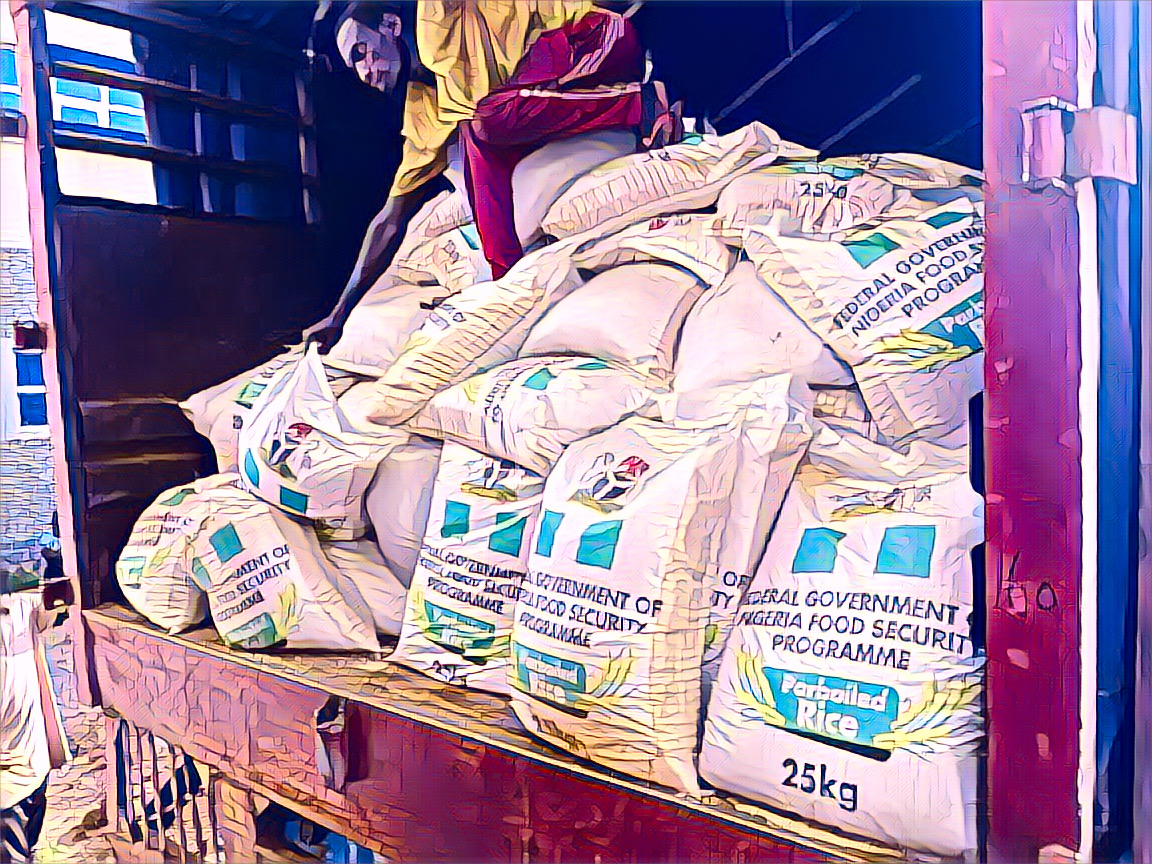The federal government has launched a palliative measure, sending 20 trucks of 25kg rice bags to each state and the Federal Capital Territory (FCT). This initiative aims to cushion the effects of rising food prices, electricity costs, and fuel expenses. Vulnerable Nigerians are the target recipients of these palliatives.
The government plans to distribute 1,280,400 bags of 25kg of rice to the 36 states and the FCT. Additionally, three truckloads of rice will be given to each of the 109 senators. A single truckload contains 1,200 bags of rice, meaning each state will receive 24,000 bags, and the total for all states and the FCT amounts to 880,000 bags.
Senators will receive three truckloads each, totaling 3,600 bags per senator. For 36 states and Abuja, this results in 392,400 bags. Combined, the grand total is 1,280,400 bags of rice.
According to the World Bank, Nigeria’s 2024 population is projected to be 229,152,219. Of this, 40.7% live in multidimensional poverty (MDP), translating to about 91.6 million people. When distributed, one 25kg bag of rice will be shared among seven of these individuals.
The Nigeria Labour Congress (NLC) supports the plan, citing any effort to reduce hunger as positive. However, they emphasize the need for a transparent and fair distribution process. NLC spokesperson Benson Upah stressed the importance of avoiding self-enrichment and ensuring the initiative reaches those in need.
Contrarily, some stakeholders and the opposition People’s Democratic Party (PDP) criticized the government’s plan. Timothy Osadalor, PDP’s Deputy National Youth Leader, called the move inadequate and urged the government to focus on good governance instead. He pointed out that previous palliative efforts failed and doubted the current initiative’s success.
The Civil Society Legislative Advocacy Centre (CISLAC) criticized the government’s approach. Executive Director Auwal Ibrahim Musa Rafsanjani argued that the administration lacks tangible programs to address hunger and poverty. He highlighted corruption and ineffective governance as obstacles to achieving food security.
Johnson Chukwu, CEO of Cowry Asset Management Limited, likened the palliative measure to treating malaria symptoms without addressing the root cause. He advised the government to tackle food production and security issues to provide a sustainable solution to hunger.
In Rivers State, Governor Siminalayi Fubara expressed gratitude for the federal food aid. The state received 21,650 bags of grains, including garri and corn. Local organizing committees were established to distribute these items to the most vulnerable.
Bayelsa State received its rice allocation but has yet to commence distribution. This delay may be strategic, considering a recent distribution of rice from the Dangote Foundation.
Akwa Ibom State received 24,000 bags of rice and increased this amount by another 24,000 bags. Governor Pastor Umo Eno emphasized the need for residents to return to farming as a long-term solution to food scarcity.
Kogi State offloaded its allocation at the Muhammadu Buhari Civic Centre. Distribution was pending, but the rice was intended for the poorest residents across the state’s 239 wards.
Economists argue that distributing rice alone won’t solve Nigeria’s hunger problem. Paul Alaje, a senior economist, warned that the government’s approach might worsen inflation. He noted that sharing rice among a small fraction of the population leaves the majority without assistance, increasing demand and prices for rice.
States such as Abia, Anambra, Enugu, Imo, Ekiti, Oyo, Ondo, Ogun, Plateau, Lagos, Nasarawa, and Kebbi were still awaiting their allocations as of Friday morning.
While the federal government’s rice palliative aims to address immediate hunger, many believe it is a short-term fix that doesn’t tackle the underlying issues of poverty and food insecurity. Transparent distribution and long-term agricultural policies are essential for lasting impact.
Source: Sun News


